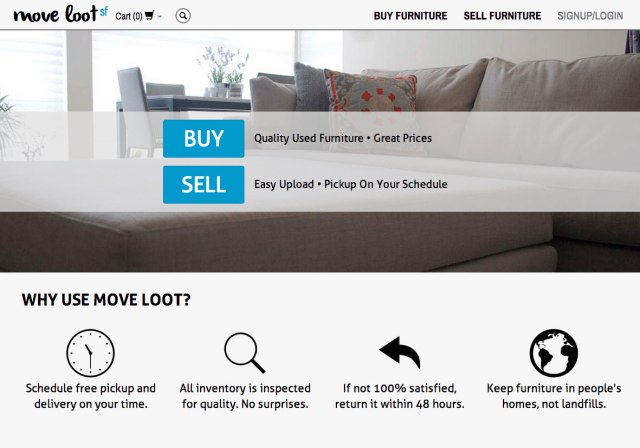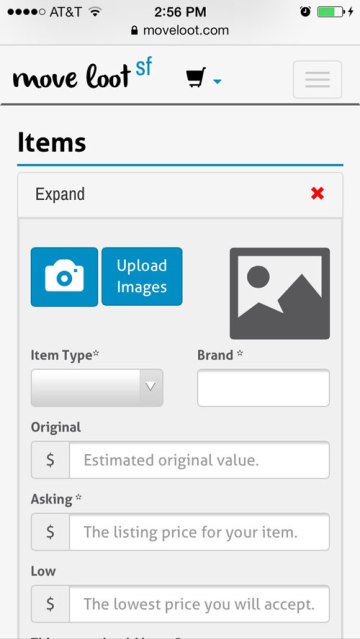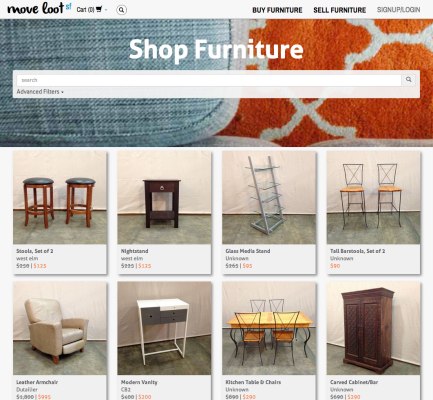Buying and selling anything online that can easily be shipped in a small box is easy, but what about bulky furniture? Move Loot, a Y Combinator-backed startup, wants to take the hassle out of buying and selling furniture online and is officially launching its service in San Francisco today.
There are two sides to Move Loot: one for buyers and one for sellers. For buyers, the service is essentially a furniture warehouse that is similar to any other online furniture site. It features the requisite description, high-res images, and other details. One cool twist is that if you don’t like the price, you can offer a lower amount. Once you’ve bought something, you can set up a delivery time and the company will arrange the delivery. Deliveries for items over $500 are free, though for cheaper items, users will have to pay $10 for smaller items and $50 for larger ones.

For sellers, the procedure is similarly straightforward. They submit pictures and details through a web form and within a day, Move Loot will contact them to pick up their items. If the furniture sells, half of the price goes to the seller and the other have to Move Loot. After 30 days, the service can reduce the price of an item by up to 40 percent and after 60 days, sellers can either pay to get their furniture returned to them, donate it to a charity or request an extended agreement with Move loot. For some reason, the company can’t accept mattresses, sofa beds and recliners.
 As Move Loot CPO Jenny Morrill told me, the team sees Move Loot as an alternative to using Craigslist for buying and selling furniture. In contrast to Craigslist, however, Move Loot offers a full customer service experience.
As Move Loot CPO Jenny Morrill told me, the team sees Move Loot as an alternative to using Craigslist for buying and selling furniture. In contrast to Craigslist, however, Move Loot offers a full customer service experience.
For now, the team, which includes CEO Bill Bobbitt, CTO Ryan Smith and COO Shruti Shah, is focussing squarely on the Bay Area as its first test market, though the plan is to expand to about four additional metro areas over the course of this year. The service has been online since last October and Morrill says it’s been growing more than 25 percent per week ever since. In total, the used furniture market is worth about $3 billion, so while this may not sound like the coolest business to be in, there is definitely a huge business opportunity here.
Given that the company is dealing with physical goods, establishing a ground operation obviously adds significant costs, so the team is moving slowly. “We also want to make sure we have the capacity to help our customers,” Morrill told me, which is forcing the company to expand very deliberately.
